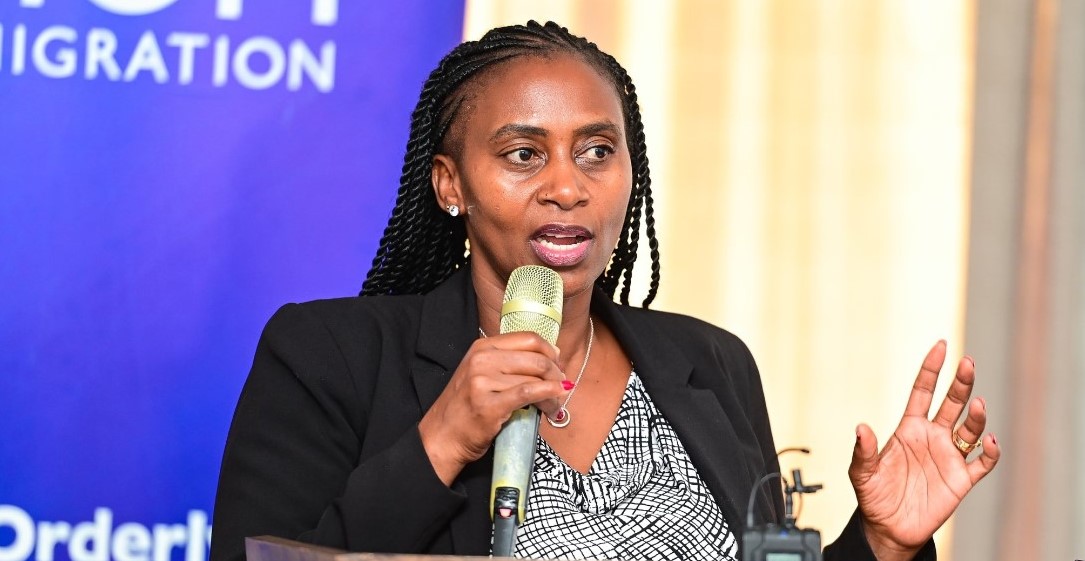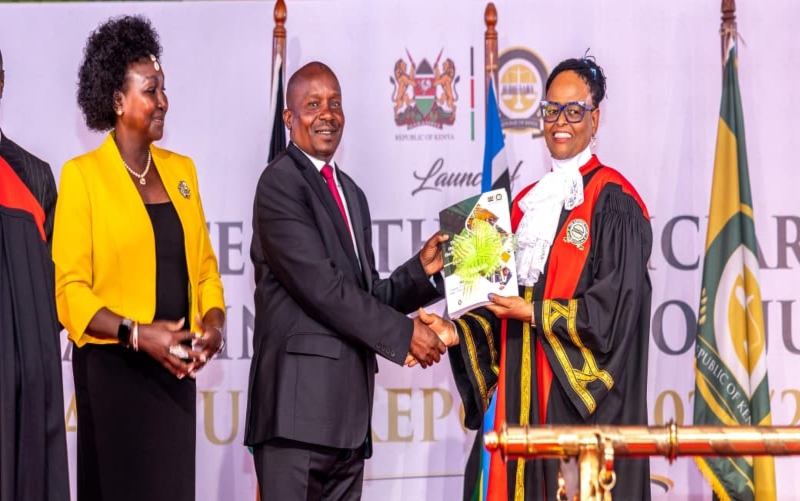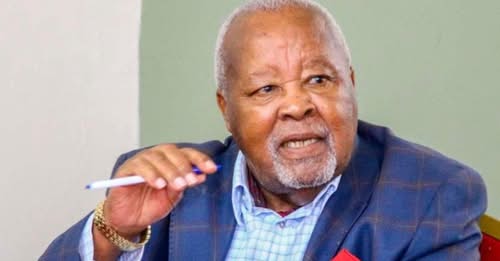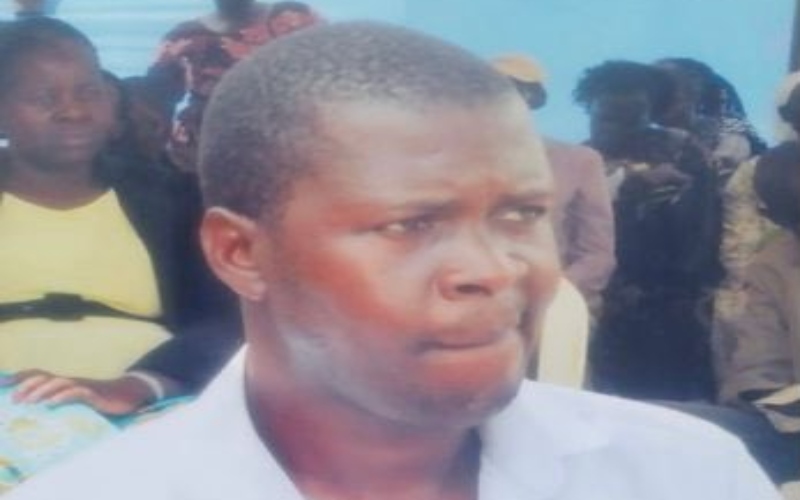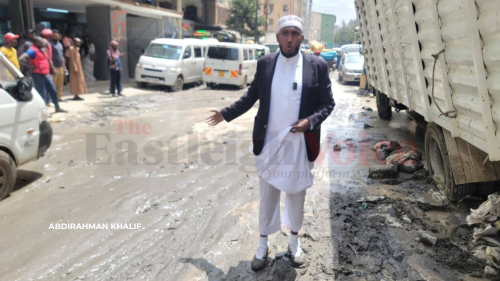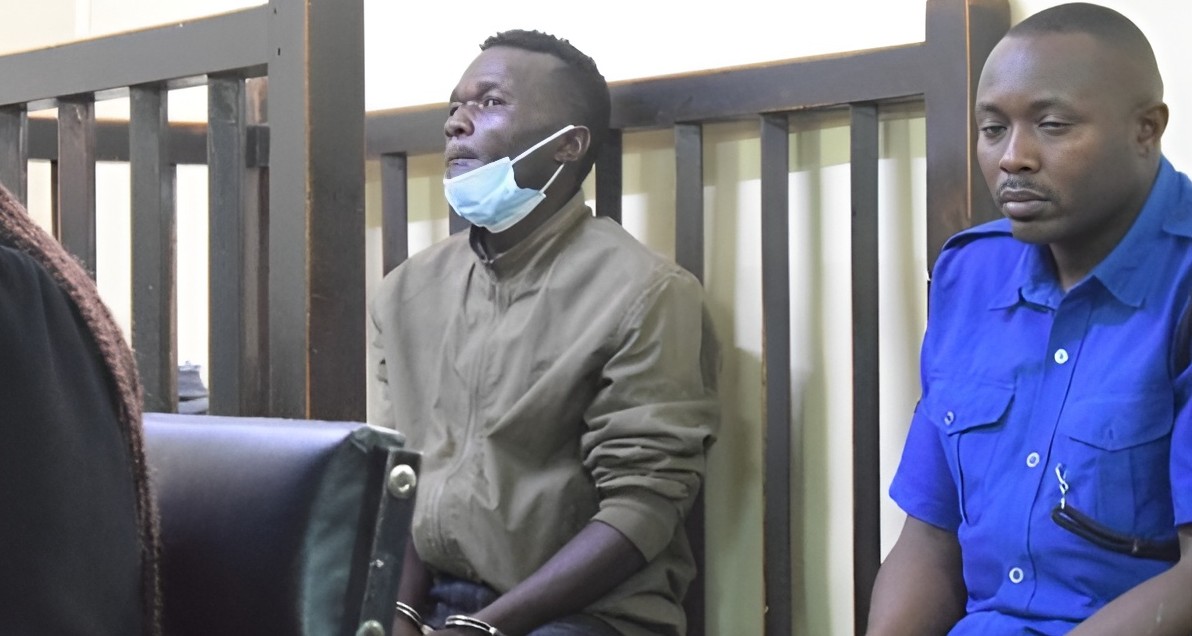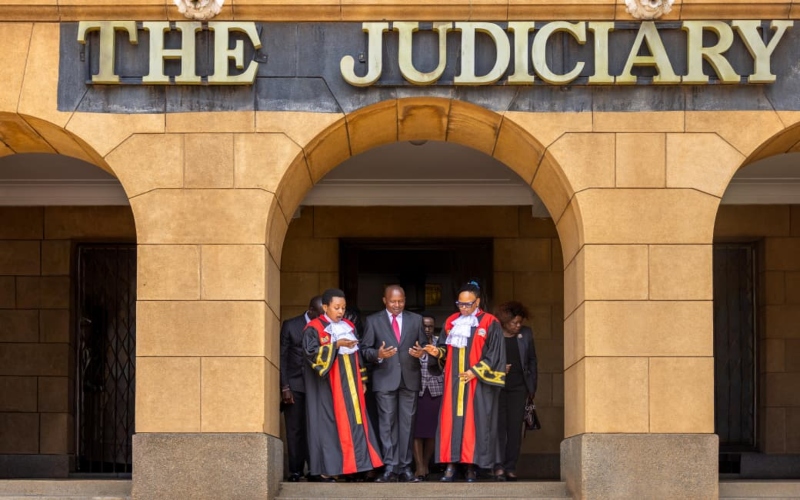Jabril Ibrahim Abdulle: The Somali diplomat strengthening relations with Kenya
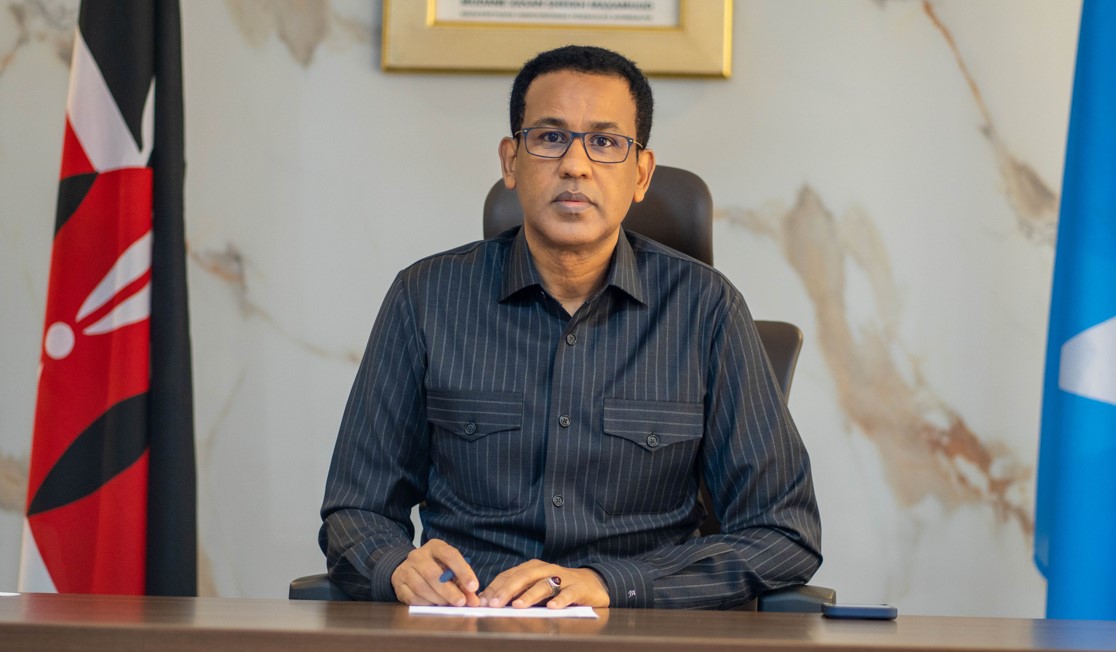
Having experienced first-hand the ravages of conflict in other parts of the world, Jabril returned to Somalia in early 2000 to facilitate peace among his people.
Somalia's ambassador to Kenya Jabril Ibrahim Abdulle’s story speaks of resilience and determination.
Born in Wardigley District in the capital Mogadishu, and the youngest of four siblings in a family where financial struggles were the norm, Jabril faced various challenges. His father was a Quranic teacher and his mother worked as a butcher to supplement the family’s income.
More To Read
- Somalia faces worsening hunger with millions needing assistance
- East African Court postpones swearing-in of nine Somali legislators to EALA
- Somali referee Omar Abdulkadir Artan crowned CAF Best Male Referee 2025
- EU plans increased funding to support Somalia’s security transition
- Somali Electoral Commission to begin voter card distribution in Banadir ahead of elections
- Africa’s rapid drone expansion promises high-tech warfare but struggles to achieve strategic results
Education was not initially on the cards for Jabril.
But he went against his father's wishes, who wanted him to follow in his footsteps as a Quranic teacher. Jabril decided to go to school and was even the head boy during his time at 15 May High School.
It was while in school that he discovered his love for activism and volunteer work.
With a passion for writing, he became a columnist for a local newspaper and wrote on current affairs and the happenings in his school.
Jabril's commitment to community service led him to join the Somali Red Crescent Society and The International Committee of the Red Cross (ICRC) as a volunteer, where he found fulfilment in helping the less fortunate.
"From a young age, I learned the power of empathy and action. Being surrounded by a community that valued giving back accelerated my growth beyond my years,” he says.
Balancing volunteer work with his studies and family responsibilities, which included helping out at the family shop, Jabril's days were long and challenging, but he persisted.
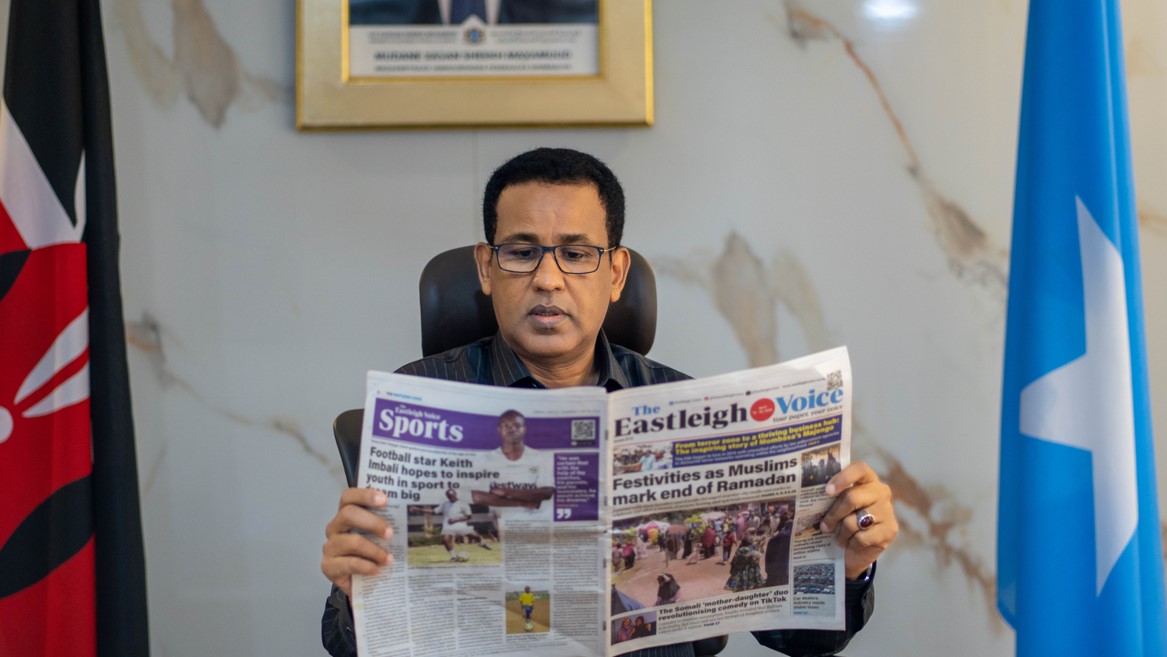 Somalia's ambassador to Kenya Jabril Ibrahim Abdulle reads a copy of The Eastleigh Voice at his office in Nairobi. (Photo: Ahmed Shafat)
Somalia's ambassador to Kenya Jabril Ibrahim Abdulle reads a copy of The Eastleigh Voice at his office in Nairobi. (Photo: Ahmed Shafat)
"I attended school in the morning, worked at the Red Crescent Society’s office in the afternoon, refereed a football match in the evening, and helped at the family shop at night," he says.
In 1987, the Finnish Red Cross changed the course of his life after offering him an opportunity to study in Finland. It was an opportunity that helped him delve deeper into humanitarian work.
This further solidified his commitment to public service and ignited in him the passion to make a difference in people’s lives.
While he was away, war broke out in Somalia in 1991.
While his friends advised him against going back home, Jabril followed his heart and his mother's wish and returned to Mogadishu.
"My mother was traditional. She wanted me back to my country, not caring about the war," says Jabril.
A few months later, he got another scholarship to study in Canada.
In 1993, tragedy struck his family in Somalia. First, his mother fell ill and was taken to Egypt for treatment but she passed away. Her body was returned to Mogadishu for burial.
During this time, his father fell victim to the civil war in Mogadishu. He was shot one evening by unknown assailants while teaching the Quran.
He was taken to Nairobi for treatment where he succumbed to his injuries and was buried at the Kariokor Muslim cemetery. Jabril visits the grave once every two months.
Despite these losses, Jabril remained steadfast in his pursuit of education and peace.
His activism grew in Canada where he was involved in conflict in the civil war, Jabril dedicated his university thesis to exploring avenues for conflict resolution and peace-building.
Jabril's idea and innovative approach caught the attention of the Canadian authorities, and he received funding for community-based conflict resolution initiatives within the country.
He later became the youngest political appointee in Ontario, when the Canadian city’s government appointed him to the Ontario Trillium Foundation.
Having experienced first-hand the ravages of conflict in other parts of the world, Jabril returned to Somalia in early 2000 to facilitate peace among his people.
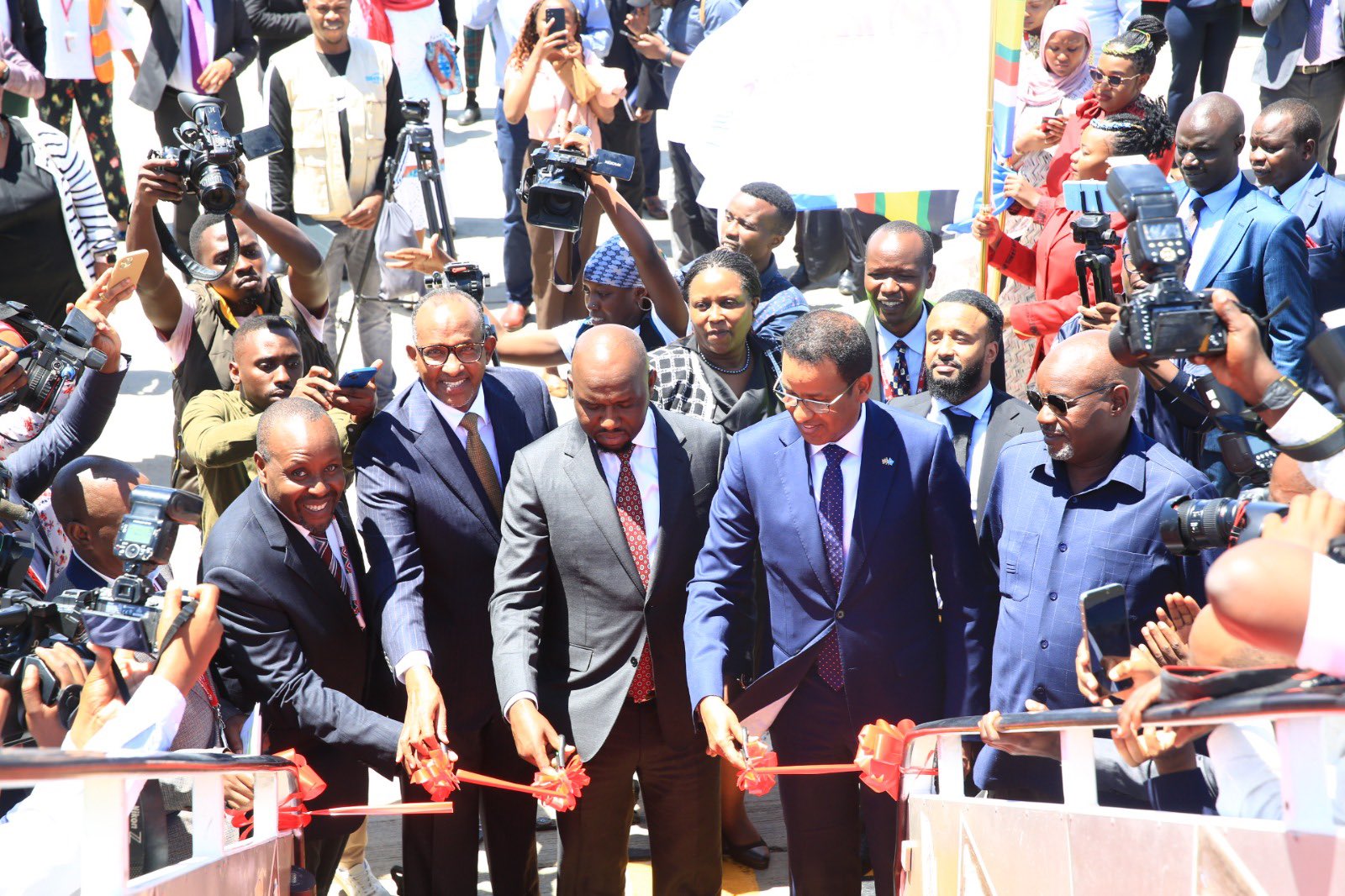 Cabinet Secretaries Aden Duale (Defence), Kipchumba Murkomen (Roads and Transport) and Somalia's ambassador to Kenya Jabril Ibrahim Abdulle and other dignitaries during the re-launch of the Kenya Airways flight to Mogadishu on February 15, 2024. (Photo: X/ Jabril Ibrahim Abdulle)
Cabinet Secretaries Aden Duale (Defence), Kipchumba Murkomen (Roads and Transport) and Somalia's ambassador to Kenya Jabril Ibrahim Abdulle and other dignitaries during the re-launch of the Kenya Airways flight to Mogadishu on February 15, 2024. (Photo: X/ Jabril Ibrahim Abdulle)
With the absence of a functioning government, he played a pivotal role, alongside others, in bringing warring Somali clans to the negotiating table, striving to heal the wounds of division and strife.
He once spent nine months solving conflicts between two clans in the Puntland region of Somalia.
Beyond conflict resolution, Jabril took part in the formation of several Somali governments, where he used his knowledge and expertise to train government ministers and other officials.
In Kenya, Jabril's commitment to justice and reconciliation saw him contribute to several commissions including the Bethwel Kiplagat-led Truth Justice and Reconciliation Commission which was formed to investigate human rights violations and other historical injustices in Kenya.
He also contributed to Somali peace processes that were held in Kenya.
Despite facing numerous threats on his life, including over seven assassination attempts in Somalia, Jabril remained undeterred, though he lost several of his friends and staff during those assassination attempts.
In his pursuit of political reform, Jabril contested in Somalia's 2022 presidential election. He was advocating for an end to corruption and injustice.
He was several times offered the position of prime minister but he declined and continued with his quest for positive change.
When Hassan Sheikh Mohamud became the president of Somalia, he appointed Jabril to represent Mogadishu in Nairobi. He was tasked with resolving the deteriorating diplomatic relationship between Kenya and Somalia.
In November 2023, he presented his credentials to President William Ruto at the State House and immediately delved into his ambassadorial duties.
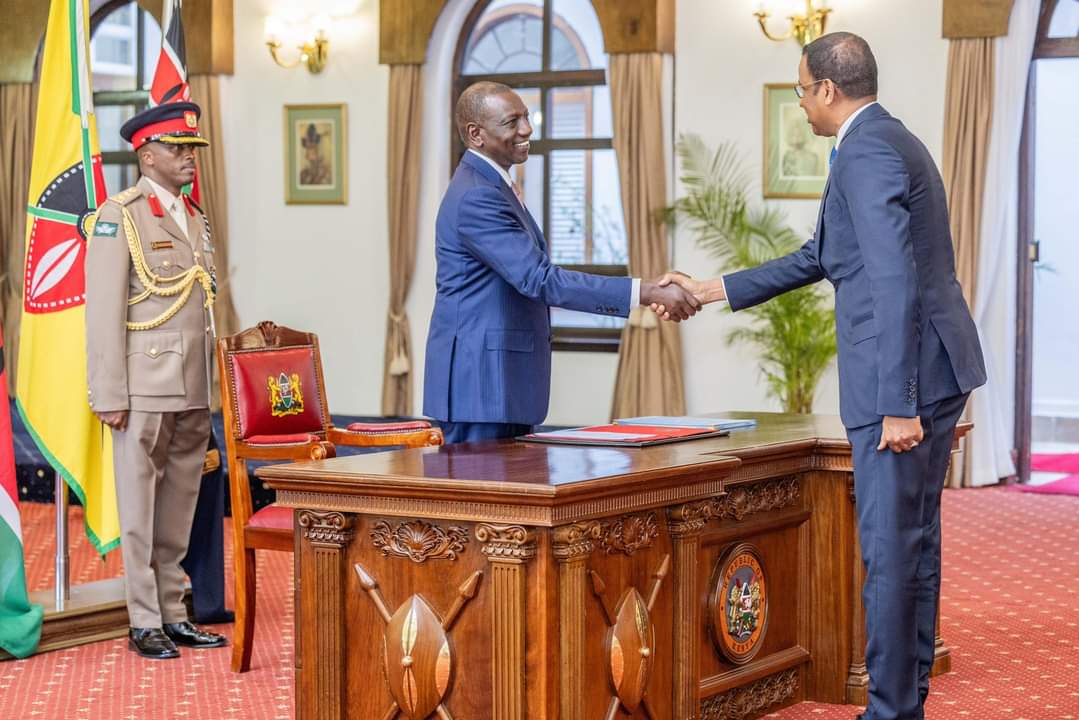 The Somalia ambassador to Kenya Jabril Ibrahim Abdulle presents his credentials to President William Ruto at State House, Nairobi on December 7, 2023. (Photo: PCS)
The Somalia ambassador to Kenya Jabril Ibrahim Abdulle presents his credentials to President William Ruto at State House, Nairobi on December 7, 2023. (Photo: PCS)
Since assuming his diplomatic role, Jabril has made significant strides in strengthening relations between Somalia and Kenya.
He says it is under his stewardship that Kenya Airways resumed regular flights to Mogadishu, besides facilitating increased trade and cooperation between the two nations.
With thousands of Kenyans working in Somalia, Jabril envisions a future where bilateral ties will flourish. Currently, over 40,000 Kenyans are working in Somalia, mostly in the construction and hospitality sectors.
Jabril says a passport application centre will be opened in Eastleigh to make it easier for Somalis to get the document. He hopes to streamline visa processes for both Somali and Kenyan citizens for a smoother movement of goods and citizens.
He also seeks to facilitate opportunities for Somali students to study in Kenyan universities.
Jabril anticipates improved diplomatic relations, citing the visit to Kenya by Somalia's Prime Minister Hamza Abdi Bare.
Despite his demanding job, Jabril finds solace in reading and physical exercise, mindful of the importance of self-care amidst the pressures of diplomacy.
Top Stories Today



